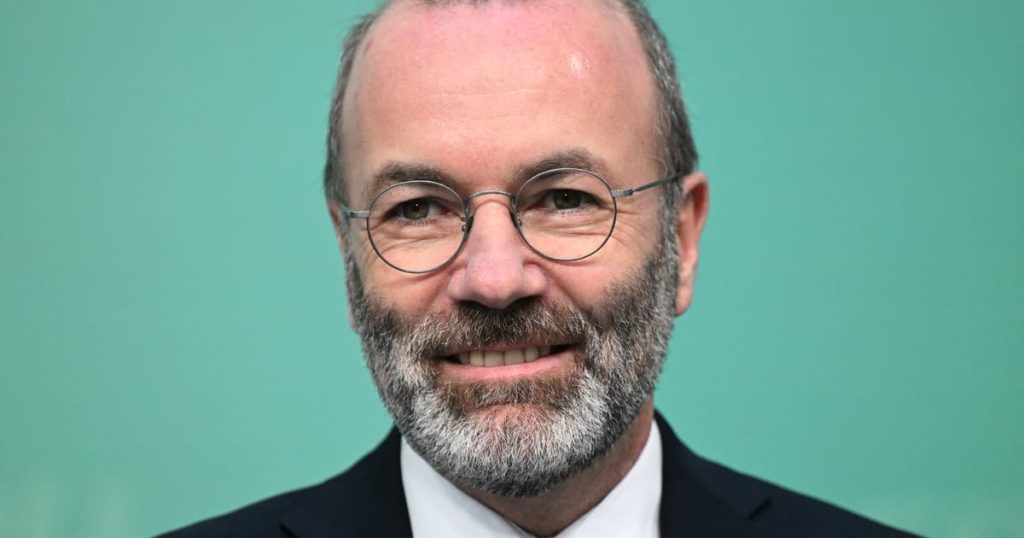Friedrich Merz, the leader of Germany’s Christian Democratic Union (CDU), is navigating a complex political landscape both domestically and within the European Union. His ambitions to play a more prominent role in EU politics, should he become Germany’s next chancellor, are intertwined with the dynamics of the European People’s Party (EPP), the center-right political group in the European Parliament. Manfred Weber, the current EPP chairman, holds significant influence within the group, and Merz’s success in Brussels hinges on securing Weber’s support. However, this relationship is not without its complexities, as internal power struggles within the EPP and potential conflicts with other key figures, like European Commission President Ursula von der Leyen, present significant challenges.
Merz’s vision for a more assertive Germany within the EU necessitates a strong alliance with Weber. The EPP, as the largest group in both the European Parliament and the Council, wields considerable legislative power. With Weber at the helm, the EPP represents a crucial source of support for Merz’s European agenda. Merz has openly criticized the current state of the EU, decrying its bureaucratic nature and advocating for a more competitive European industry. He envisions a Germany that actively shapes EU policy, moving away from the traditional practice of abstaining on key votes and leveraging its economic and demographic weight to advance its interests.
However, Weber’s leadership within the EPP faces internal challenges. The party’s secretary-general has publicly criticized Weber, accusing him of centralizing power. This internal dissent could potentially destabilize Weber’s position and complicate Merz’s efforts to secure his support. Weber’s strategic moves, including transferring key allies to leadership roles within the party headquarters, are seen as attempts to consolidate his control. While Weber currently maintains a firm grip on the parliamentary group, the ongoing power struggle could create uncertainty and impact his ability to effectively champion Merz’s agenda in Brussels.
Further complicating Merz’s European ambitions is the presence of Ursula von der Leyen, the current President of the European Commission. Both belonging to the CDU, Merz and von der Leyen are likely to clash on key policy issues. Merz’s criticism of the EU’s bureaucratic machinery and his emphasis on industrial competitiveness could put him at odds with von der Leyen’s priorities. Negotiating these potential conflicts and maintaining a productive working relationship with the Commission President will be crucial for Merz to effectively implement his European vision.
Merz’s ambition to elevate Germany’s role in the EU represents a significant departure from the country’s traditional approach. Historically, Germany has often taken a more cautious and reserved stance in EU affairs, preferring to build consensus and avoid overt displays of power. Merz’s call for a more assertive German voice in Brussels signals a shift towards a more proactive and potentially confrontational approach. This new direction could reshape Germany’s relationship with its European partners and influence the overall direction of EU policy.
The interplay between Merz’s domestic political aspirations and his European agenda creates a complex and dynamic situation. His success in becoming Germany’s next chancellor will heavily influence his ability to pursue his European ambitions. Similarly, securing Weber’s support and navigating the internal politics of the EPP will be essential for Merz to achieve his goals in Brussels. His vision for a more powerful and influential Germany within the EU promises significant changes to the European political landscape, but its realization hinges on successfully navigating these intricate political dynamics.














